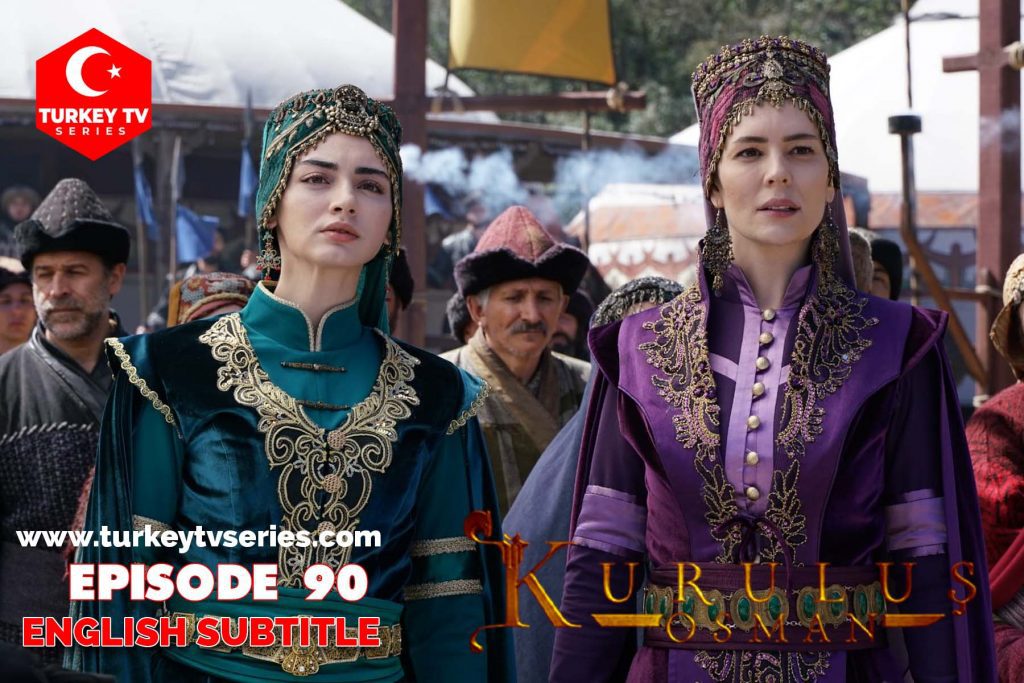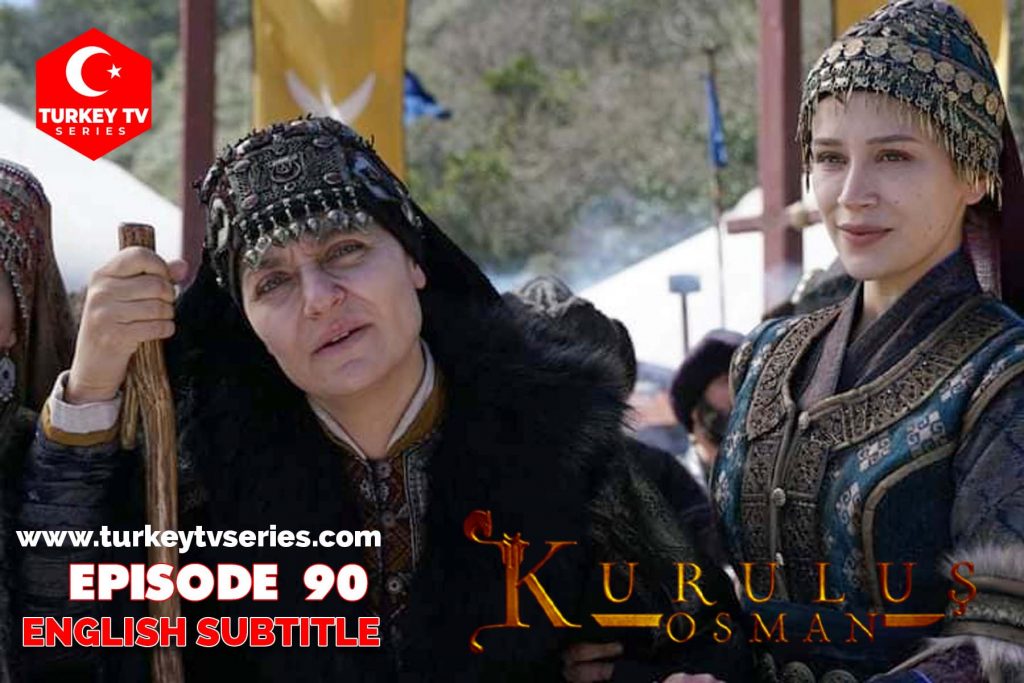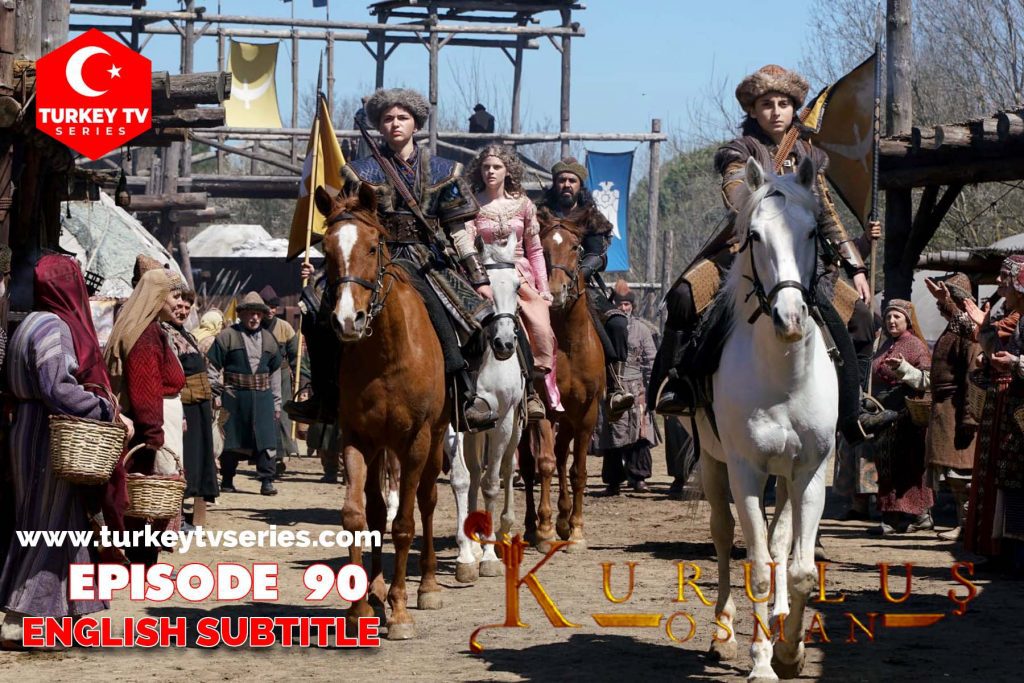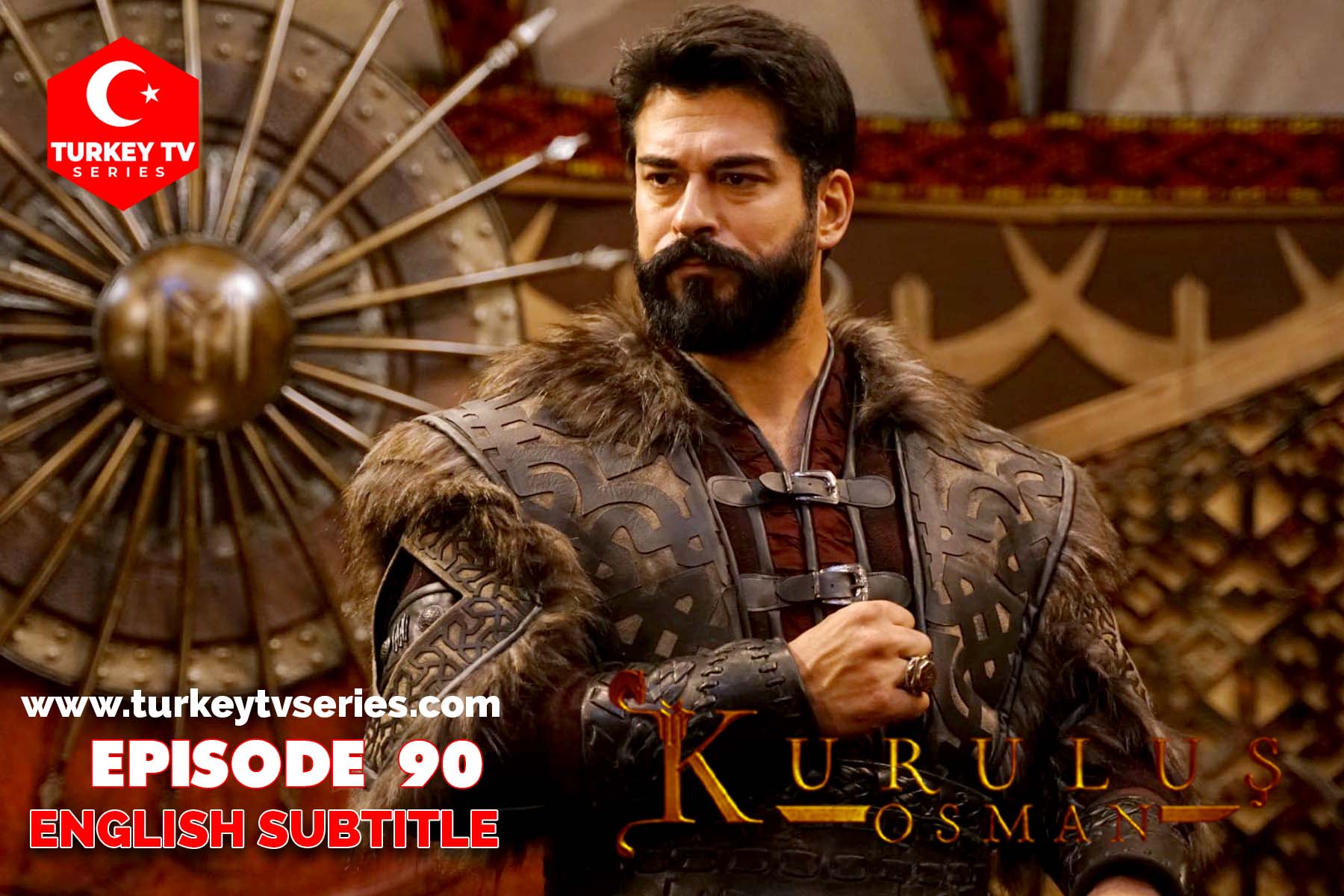Kurulus Osman 90 Bangla Subtitle Free | Turkey TV Series
Kurulus Osman 90 English Subtitle | Turkey TV Series
Kurulus Osman 90 English Subtitle | Turkey TV Series
Kurulus Osman Episode 90 English Subtitle | Turkey TV Series
Facebook Page
THE PALACE
Kurulus Osman Episode 90 English Subtitle Free | Turkey TV Series Anyone, regardless of his social status, could petition the imperial council directly, and for important matters the reâyâ would send delegations to Istanbul. As a result, justice and security were greatest in the regions nearest the capital. In distant areas plaintiffs went to the court of the local kâdî, who recorded their grievances in his register and addressed a formal letter of complaint to the sultan or, if the case were urgent, sent a spokesman to Istanbul. Watch All episode
The investigation of complaints and the rectification of grievances were considered the most important of the imperial council’s duties. Complaints usually concerned the heavy burden of taxation, abuses in the collection of taxes, or oppression by the local authorities. The sultan sometimes sought to please the people with grandiose gestures, sweeping aside the formalities of law and disregarding the interests of the Treasury.
Thus the people, whether they were Anatolian Turks or Balkan Christians, had to look upon the sultan as the highest representative of justice and as a symbol of mercy who could remove all injustices.
In 1661 a group of people in Denizli sent a delegation to Istanbul to complain of oppression by a local notable. But the members of the imperial council, influenced by the defendant, ignored the charges, until the plaintiffs cried, ‘If justice is not done here, where else we go?’
The sultan, listening from behind the curtain, ordered a special meeting of the imperial council for the next day. The plaintiffs were found to be in the right and the defendant was immediately executed. Foreigners too had recourse to the sultan as a last resort. For example, in 1648, when the English wished to complain about the increase in customs duties and the viziers had denied them direct access to the sultan, Kurulus Osman Episode 90 English Subtitle Free | Turkey TV Series
they burned pitch in copper buckets attached to the masts of seven English ships so that the fires were visible from the Palace. The sovereign saw the fires and sent his çavuş baş to hear the complaint.
It was possible, too, to appeal to the imperial council against the decisions of local kâdîs. In this case, depending on its nature, the suit was referred to the same court for a re-hearing or transferred to another court in the same district. The imperial council heard directly complaints against government administrators.
Kurulus Osman Episode 90 English Subtitle Free | Turkey TV Series In the execution of justice the sultan would often have recourse to other methods typical of the near-eastern state, including the despatch of inspectors and secret agents and the proclamation of adâletnâmes. Sometimes a sultan would disguise himself and personally carry out inspections. Süleymân I used to dress as a sipâhî and Ahmed II as a mevlevî dervish, and thus disguised they would mingle with the people.

Murâd IV, on his incognito tours, had many trouble-makers mercilessly executed, hoping thereby to strengthen the people’s confidence in the royal and his own authority. A principal duty of the grand vizier was from time to time to check security in the capital and to inspect market prices, reporting the situation to the sultan. The sovereign kept the army and the provinces under scrutiny by secretly despatching palace slaves to gather information. In the provinces, however, the local kâdîs were usually empowered to carry out official inspections and were required to submit reports.
Adâletnâmes, another instrument of justice, were general declarations by the sultan, enumerating and forbidding under threat of severe punishment abuses which the authorities had perpetrated in a particular region or throughout the empire. They were publicly announced to the people and anyone who wished could obtain a copy from the kâdî. Janissaries and sipâhîs, too, had the same rights of complaint, and would gather before the Palace to make known their grievances against the men of state.
These protest gatherings sometimes even threatened the sultan’s throne. When in 1588 the sipâhîs were paid in debased coin whose value had fallen by half, they obtained a fetvâ from the şeyhülislâm, proving this an injustice, and then went to the Palace to demand the death of Mehmed Pasha, the author of the financial reform. Listening at his curtained window the sultan heard this complaint and wished to ignore it, but when his ministers informed him that this would be too dangerous he ordered the execution of Mehmed Pasha and the chief defterdâr.
The use of force to obtain justice set a dangerous precedent. In 1632 the kap kulu troops rose in revolt and entered the Palace. A throne was set up before the Gate of Felicity, whence the sultan could hear the complaints of his troops. All the state dignitaries, ulema and military commanders stood about the sultan’s throne to discuss the causes of the revolt, but the soldiers declared that the grand vizier was a traitor to the sultan and the state and cut him to pieces before the sovereign’s eyes.
This act was a violation of the sultan’s authority since only he had the power to dispense high justice. After Mehmed II had ceased to preside in person over the deliberations of the imperial council, the authority to review grievances and hear cases passed normally to the grand vizier, whom the kâdîaskers of Rumelia and Anatolia, also members of the imperial council, assisted in cases within the scope of the şerîat. Kurulus Osman 90 Bangla Subtitle Free | Turkey TV Series

After meetings of the imperial council, the sultan received the council members in the chamber behind the Gate of Felicity to approve and confirm their decisions. They entered his presence in a fixed order. The first to enter was the ağa of the Janissaries, followed after his departure by the kâdîaskers. Next came the grand viziers and the other viziers, the defterdârs and the nişanc . The defterdârs left after reporting on financial affairs, leaving the grand vizier to give an account of the day’s business and receive the sultan’s confirmation of particularly important appointments and decisions.
Kurulus Osman 90 Bangla Subtitle Free | Turkey TV Series In this same Chamber the sultan received foreign ambassadors and newly appointed governors, military commanders and kâdîs. At other times, whenever he wished to read an order directly, he wrote it in his own hand and sent it to the grand vizier through the kap ağas . Before taking important decisions the sultan would summon the grand vizier or the şeyhülislâm to the Palace for discussions, either by themselves or with others whom he trusted.
In 1597, for example, after the dispersal of the council, Mehmed III summoned the grand vizier and another vizier to a pavilion by the sea where they discussed the war with Austria. Apart from these secret consultations the sultan could, before taking important decisions, convene consultative councils over which he or the grand vizier would preside. He would summon the şeyhülislâm, the senior viziers and military commanders, and other advisers, all of whom could express their views freely.
Before his attack on the Mamlûks, Selîm I held such a meeting, where the decision for war was taken. If the grand vizier wished to hold such a meeting he had first to obtain the sultan’s permission. However, certain extraordinary consultative councils took the decision to depose the sultan and form a transition government. Since the government’s most important function was the administration of justice, the imperial council was essentially a high court, but in the Ottoman state it served also as a sort of cabinet that discussed and took decisions on all governmental affairs and appointments.
In conformity with the traditional near-eastern concept of state, the principal activities of government fell within the spheres of three separate departments – the political, judicial and financial. To preserve the state’s authority, to maintain internal security and to defend the realm from foreign enemies were essentially political matters and the responsibility of the viziers. The two kâdîaskers represented the judicial, and the defterdârs the financial authority.
Beside these was the nişanc , representing the Chancery, who certified that orders and letters issuing from the imperial council conformed to established practice and were in accord with state regulations. It was he who fixed the tuğra – the sultan’s official monogram – to a document to confirm its legality. The holders of these four offices, known as the ‘Pillars of the Realm’, represented the royal authority in the imperial council and had the right of personal access to the sultan.
They were responsible only to him and could be tried in a kâdî’s court only in civil lawsuits. Only the sultan could pass judgement on them in their public capacity. In 1596 a suggestion that the chief defterdâr be tried for accepting bribes was rejected on the grounds that ‘the chief defterdâr acts on the sultan’s authority and is director of the Treasury in the sultan’s name. To date there has never been an inquiry into this office.’ Kurulus Osman 90 Bangla Subtitle Free | Turkey TV Series

The beylerbeyi of Rumelia, originally the commander of all timar-holding sipâhîs in the provinces, had always had the privilege of sitting with the viziers in the imperial council and participating in discussions. Süleymân I confirmed the privilege. Sometimes the grand vizier held this post. In the second half of the sixteenth century, as the fleet grew in importance, the kapudan-i deryâ – the grand admiral – came to be chosen from among the viziers and thus gained permission to sit in the imperial council.
The ağa of the Janissaries and other military commanders, and the şeyhülislâm, took part only in extraordinary meetings. The şeyhülislâm had no political authority. Once, during the reign of Selîm I, the şeyhülislâm Alî Cemalî went of his own accord to the imperial council, when the death penalty for a hundred and fifty guilty Treasury officials was under discussion. Maintaining that this sentence was contrary to the şerîat, he requested an audience with the sultan. Kurulus Osman 90 English Subtitle | Turkey TV Series
The şeyhülislâm’s interference enraged the authoritarian Selîm I, who told him that his words were ‘a violation of the sultan’s authority’ and that ‘no one had the right or competence to question what the sultan commands or forbids’. Thus in the classical period of the empire the sultan delegated his political and executive authority only to the viziers. Only they had the right, when in the provinces or on campaign, to establish of their own accord an extraordinary council to hear suits.
They could impose sentences, including even the death penalty. In the imperial council, they used their authority with the consent or order of the grand vizier. On the grand vizier the sultan conferred the right to act as his absolute deputy in the exercise of his political and executive authority. The kânûnnâme of Mehmed the Conqueror describes the grand vizier thus Know that the grand vizier is, above all, the head of the viziers and commanders. He is greater than all men; he is in all matters the sultan’s absolute deputy.
The defterdâr is deputy for the Treasury but under the supervision of the grand vizier. In all meetings and in all ceremonies the grand vizier takes his place before all others. Viziers, ulema, governors, military and reâyâ presented their petitions and requests to the grand vizier who, if he deemed it necessary, transmitted them to the sultan to secure his approval. He then issued an order bearing the sultan’s seal. All appointments had first to be submitted to the grand vizier.
As the sovereign’s absolute deputy he could take certain decisions without consulting the sovereign: ‘No one, not even the other viziers, must be privy to the grand vizier’s dealings with the sultan and to his secret decisions.’ The ruler entrusted him with his own signet, as a symbol of his function as absolute deputy, repossession of the signet tokening his dismissal. When the grand vizier was commander-in-chief of a campaign his powers reached their height, since he could then take decisions without consulting the sultan and make appointments and dismissals at will.
The grand vizier’s status as military commander and the sultan’s absolute deputy in civil administration, which would have been abnormal in the earlier Islamic states, was normal in the Ottoman Empire. The first grand vizier to possess these powers was Çandarl Hayreddîn in the reign of Murâd I. Mehmed II was to create the classical type of Ottoman grand vizier, by selecting his grand vizier from his slaves and entrusting them, as his own deputies, with an absolute authority and a central position in the state.
The first example was Mahmûd Pasha, who held the post continuously from 1455 to 1468. There was, during the reign of Murâd II, a rivalry between Halîl Pasha, a bureaucrat from the ulema, and the beylerbeyi of Rumelia who commanded the provincial army. Mehmed the Conqueror was for some time to unite the offices of grand vizier and beylerbeyi of Rumelia in the person of Mahmûd Pasha.
However, a number of checks on the authority of the grand vizier safeguarded the position of the sultan.

Two grand viziers were in fact executed allegedly for coveting the sultanate – Ibrahîm Pasha in 1536 and Nasûh Pasha in 1614 – and a powerful grand vizier could cause a Sultan’s deposition. But his authority was not unlimited. Before making an important decision the grand vizier had absolutely to consult with the other members of the imperial council; a factor in the condemnation of Ibrahîm Pasha was his habit of acting without consulting the other viziers.
Furthermore, the heads of the financial and judicial branches of the government were in their own spheres the direct representatives of the sultan, who had absolute control of appointments to these posts. Murâd III appointed one of his close associates, Üveys Pasha, to the post of defterdâr, to counteract the excessive influence of the grand vizier Sokollu. The grand vizier had the right to supervise the defterdâr but, in the words of the kânûnnâme of Mehmed the Conqueror, ‘Unless the defterdâr orders it, not a single akçe will enter or leave the Treasury.
The defterdâr, on the other hand, had to present a monthly report to the grand vizier. A request for the defterdâr’s dismissal had to be made directly to the sultan. On afternoons following meetings of the imperial council at the Palace, the grand vizier, the defterdâr and the kâdîaskers held councils in their own residences to discuss the business of their own offices. The grand vizier did not command the Janissaries, the most important military corps. Kurulus Osman 90 English Subtitle | Turkey TV Series
The ağa of the Janissaries, whom the sultan appointed directly, held a separate council at his own residence where he dealt with Janissary affairs and heard suits involving the troops. He had, on the other hand, to inform the grand vizier beforehand of any petitions which he would present to the sultan. Furthermore, the grand vizier selected the clerk of the Janissaries,
who acted as a personnel officer to the corps, and this gave him some administrative control.
When a sultan did not go on a campaign in person, some of the Janissaries remained behind; only very rarely were all the Janissaries placed under the command of the grand vizier.
From the second half of the sixteenth century the kapudân-i deryâ also presided over a separate council which dealt with naval matters and lawsuits arising in the fleet, and made nominations, appointments and dismissals. The grand vizier, however, had the right to visit and inspect the Arsenal from time to time.
The kap ağas supervised the Palace staff and administration independently of the grand vizier, making all Palace appointments and promotions by directly petitioning the sultan. The grand vizier, however, could petition the sultan for the dismissal of a kap ağas and the appointment of his own nominee. Kurulus Osman Episode 90 English Subtitle Free | Turkey TV Series
Watch All episode
Turkey TV Series
To Be continue…..



